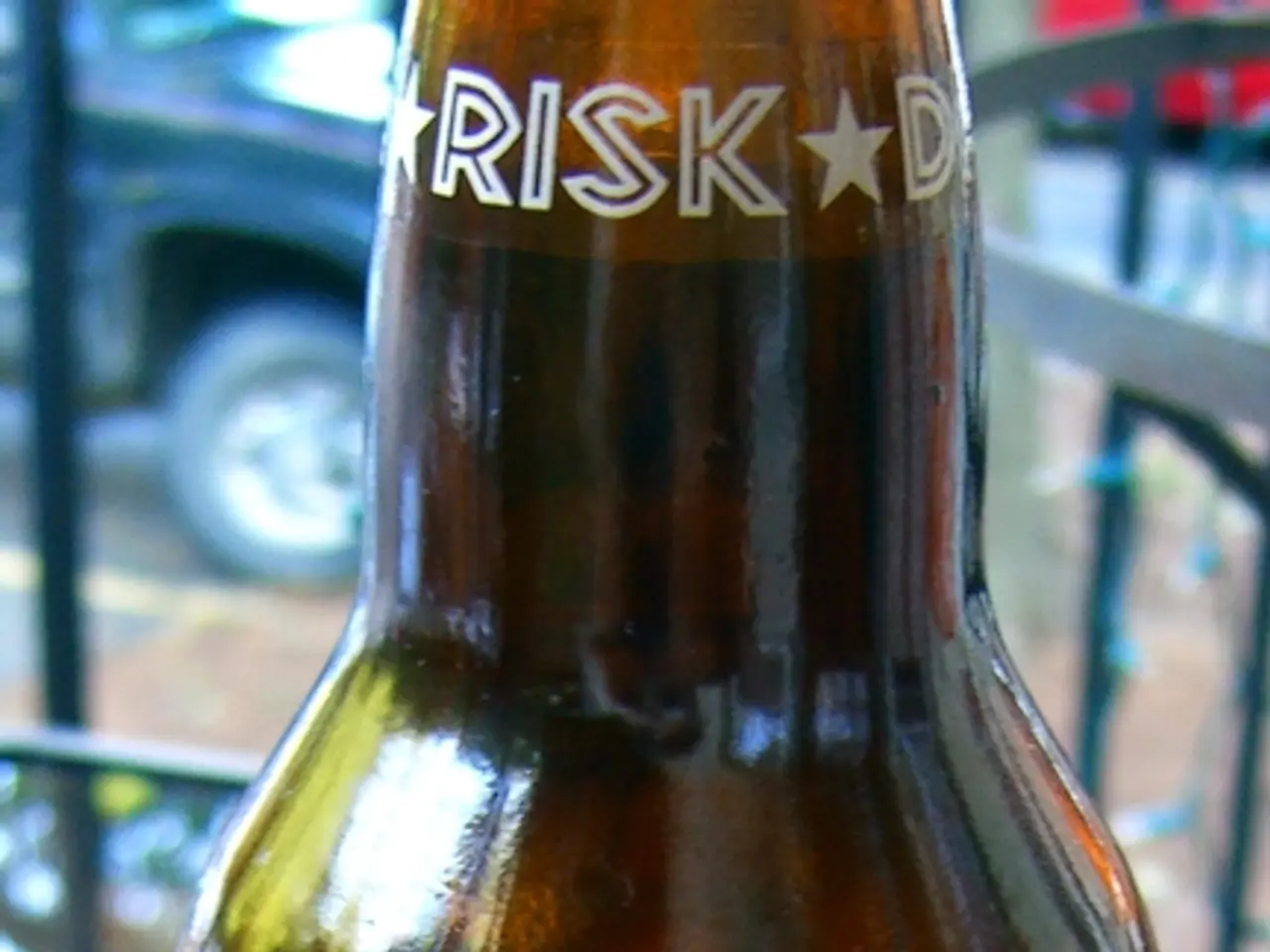Attendees at Munich's CSD should be Aware of Heat's Impact, Alcohol and Sunscreen Included
Savoring Munich's Christopher Street Day (CSD) Under the Scorching Sun
Soak up the vibrant energy of Munich's Christopher Street Day (CSD) this weekend, but remember to mindfully choose your beverages and be aware of heat-related hazards to ensure a safe and delightful experience.
Importance of Keeping Hydrated
Making sure you drink sufficient fluids is crucial during the hot weeks. In regular circumstances, one should consume about 1.5 liters of fluid per day. But on sultry days like these, it's advisable to increase your intake to two to three liters. On hot summer days, the human body loses fluid at a faster rate—double or even triple the usual amount—which can lead to various health problems, particularly those related to the cardiovascular system.
To compensate for such fluid loss, it's essential to drink enough.
Optimal Drink Choices
Whether you're soaking up the celebration in Munich or elsewhere, ensure you're drinking enough, especially if you're spending lengthy hours outdoors.
The most ideal options are tap water, mineral water, and chilled herbal or fruit teas without sugar. Light fruit juice spritzers won't harm you either, as long as theMatcher ratio is 3 parts water to 1 part juice.
Steer clear of pure fruit juices and sodas, as they often lead to more thirst and contain substantial fruit sugar. Over-consumption of fruit sugar can give rise to an increase in uric acid production and inflammation, raising the risk of kidney stones and chronic kidney failure.
Avoid alcohol altogether when the weather's extreme. Alcohol modifies body temperature and further dehydrates the body. By causing blood vessels to dilate, blood pressure to drop, and frequent bathroom breaks, alcohol contributes to more fluid loss.
Moreover, alcoholic beverages do not provide the necessary fluid and electrolyte balance that the body has lost. Drinking alcohol in the heat may eventually result in heat injuries, fatigue, weakness, and even collapse.
It's best to steer clear of exceptionally chilled drinks, as well. Overly cold drinks trigger the body to become more heat-conscious, which in turn causes additional sweating. To ensure your body stays cool, avoid ice cubes and opt for cool or slightly warm drinks.
However, not only is drinking water essential for hydration, but so are water-rich fruits and vegetables. Specifically, melons, oranges, or cucumbers are excellent choices.
Sunscreen Essentials and Sun Safety
Throughout the day of parades, dancing, and celebrating, the skin is susceptible to a great deal of strain. UV radiation deeply penetrates the skin, boosting the risk of skin cancer and speeding up skin aging. So, avoid direct sunlight whenever possible, wear a hat, opt for UV-resistant clothing, and generously and frequently apply a high SPF sunscreen to all exposed areas.
To wind down after a heat-filled day, nourish your skin with soothing ingredients like Aloe Vera, Panthenol, or Hyaluronic Acid. Such components help cool, soothe skin irritation, and encourage regeneration.
Further Cautions and Concerns in Intense Heat
Those who spend a prolonged period in the scorching sun, especially without adequate protection, run the risk of sunstroke or heatstroke. Heatstroke is a potentially life-threatening condition that should be taken seriously.
Though frequently used interchangeably, sunstroke and heatstroke are distinct medical conditions triggered by extreme temperatures. Though sunstroke can generate unpleasant headaches, nausea, and dizziness, it generally doesn't pose a direct threat to life. Heatstroke, however, could be fatal. Unlike sunstroke, heatstroke doesn't necessitate prolonged sun exposure; excessive sauna sessions or overexertion in a sweltering, enclosed environment can also induce this condition.
Elderly individuals and children are particularly vulnerable to sunstroke and heatstroke, given their reduced sweating capacity and inability to regulate body temperature as effectively.
If sunstroke or heatstroke symptoms arise, it's essential to react promptly. Move the affected person to a shaded or cool area immediately, loosen tight clothing, provide fluid if the person is conscious, and cool the body using wet towels on the head and neck. Never apply ice directly to the skin to avoid hypothermia. Monitor the person's breathing and consciousness. If the person loses consciousness or breathing ceases, begin immediate CPR.
- Incorporating science and environmental-science, it's essential to be aware of climate-change impacts on our health-and-wellness, such as increased heatwaves and the need for proper hydration.
- On top of maintaining adequate hydration, fitness-and-exercise routines are vital for maintaining good cardiovascular health, which is crucial in coping with extreme temperatures in hot summer days.
- If you're indulging in skin-care, opt for products with soothing ingredients like Aloe Vera, Panthenol, or Hyaluronic Acid to alleviate skin irritation caused by sun exposure.
- Mindful nutrition, including the consumption of water-rich fruits and vegetables, is crucial for maintaining hydration levels and overall well-being, especially during intense heat.






